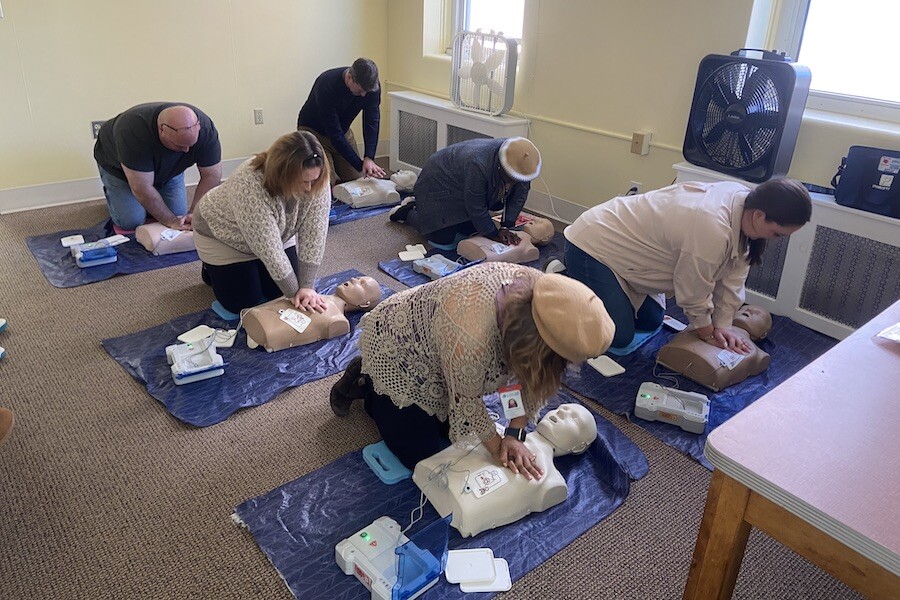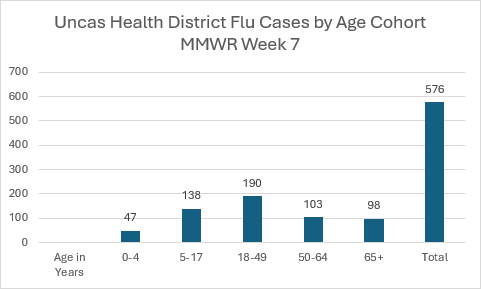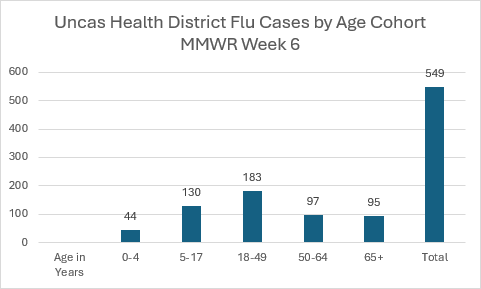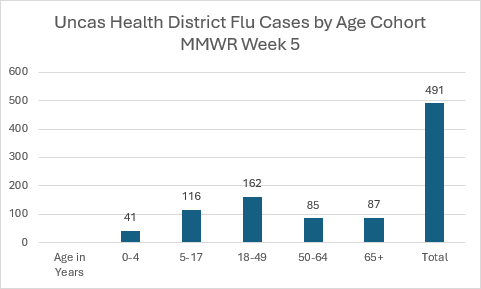18 new influenza cases have been identified in the 11 cities and towns of the Uncas Health District this flu season, according to February 24, 2024, data from the Connecticut Department of Health. This week’s reported numbers bring the flu season total to 594 cases in the district.
Those aged 18-49 years old represent the largest group for positive flu cases, comprising 199 of the total cases reported, followed by 5-17-year-olds with 139 cases.
It is important to note that influenza cases are only reported if there is a hospitalization or if the positive test comes from a minor.
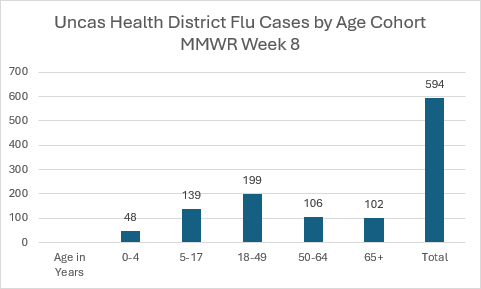
While the recent snowfall has melted, flu season generally lasts through April or May. So, it is important to remain cautious, and it’s not too late to receive your flu vaccine. Vaccination is the single most effective way to protect yourself and others from the flu. Talk to your doctor today about getting vaccinated – it’s still your best defense against influenza. Remember to:
- Wash your hands frequently with soap and water, especially after being in public places or around sick people.
- Cover your coughs and sneezes with a tissue or your elbow to prevent spreading germs.
- Stay home if you’re feeling unwell to avoid making others sick.
Stay safe and healthy!



